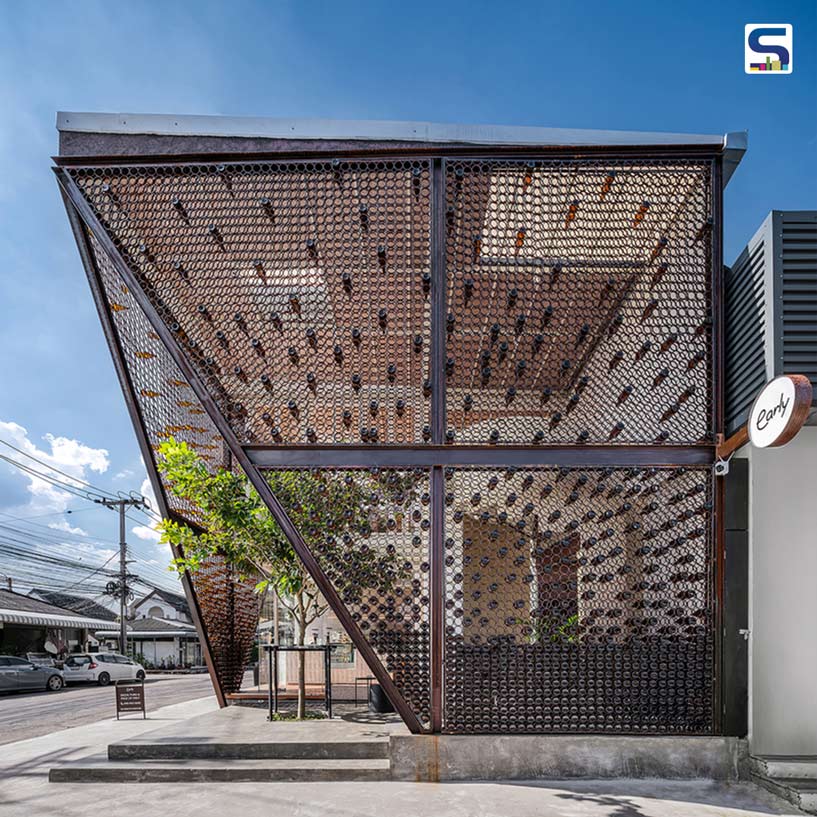
Early BKK emerged from Kaytita Chaisuksiri’s unwavering passion and determination to establish a community café with a genuine commitment to green and sustainable principles. Located in a vibrant neighborhood in Bangkok, this café aimed to be a welcoming space accessible to all residents, including families and their beloved pets. Unlike typical profit-driven businesses, Early BKK focused on promoting recycling, green concepts and a sustainable lifestyle to both visitors and neighbors. Recognizing the pressing issues surrounding waste management, the design incorporated upcycled materials that had been overlooked, giving them new life. Know more about it on SURFACES REPORTER (SR).
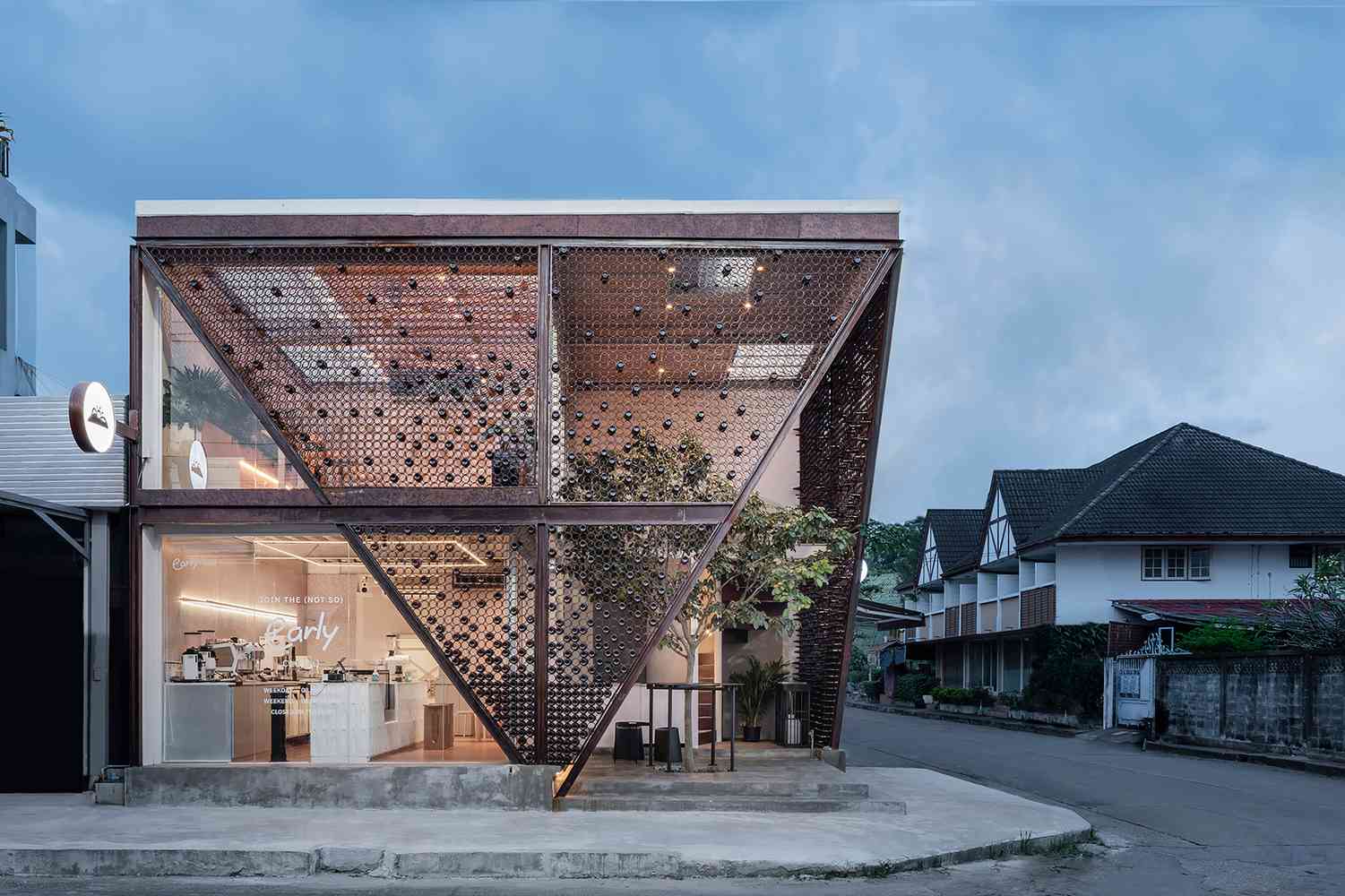
Early BKK focused on promoting recycling, green concepts and a sustainable lifestyle to both visitors and neighbors.
Driven by Early BKK’s clear mission, space+craft embarked on extensive research on upcycling materials and waste in the surrounding area. Milk cartons and glass bottles, commonly found in the neighborhood, emerged as the most suitable materials for recycling and repurposing. These discarded containers became the primary elements throughout the café's design, from the architectural facades to the interior finishes and furniture.
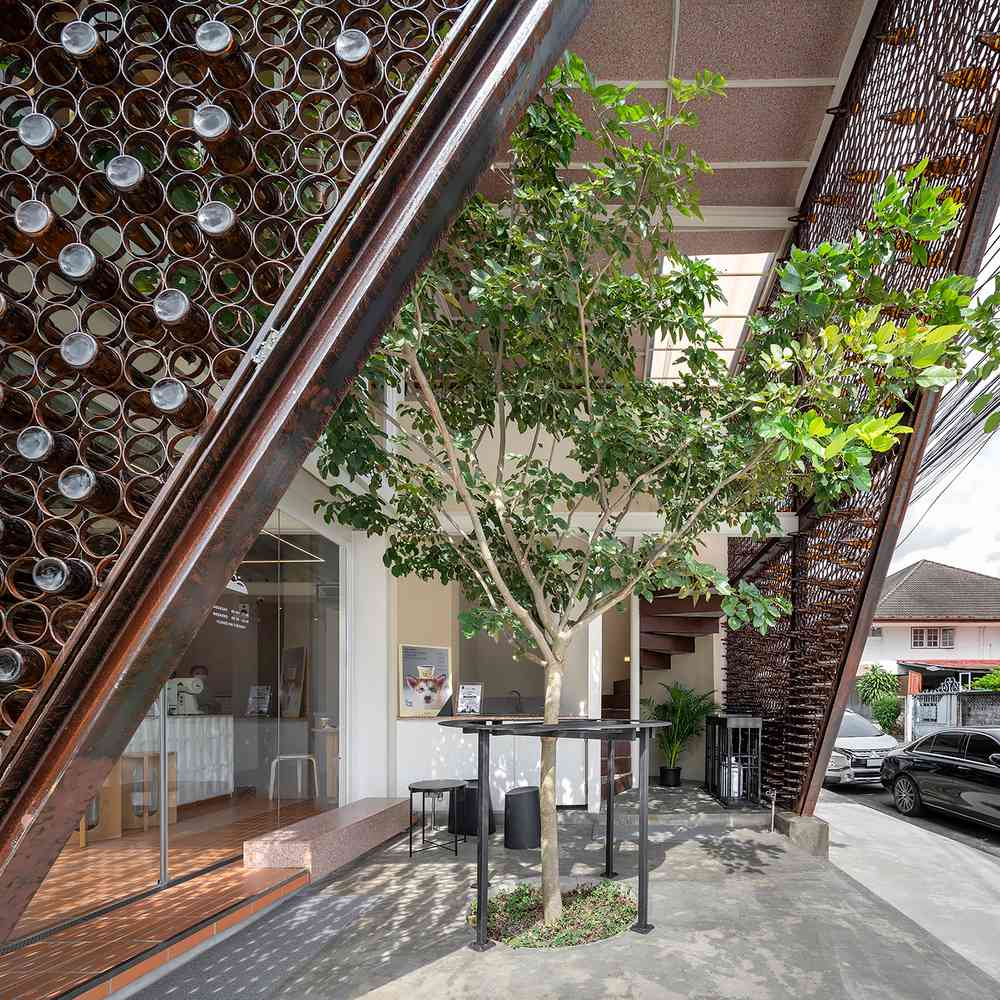
Milk cartons and glass bottles, commonly found in the neighborhood, emerged as the most suitable materials for recycling and repurposing.
Working closely with a factory, space+craft transformed small cut pieces of used milk cartons into re-board, a 100 per cent recycled board. This re-board material was utilized extensively in the interior spaces including doors, ceilings, chairs and tables. To ensure a cohesive colour scheme, only orange and warm-coloured milk cartons were selected, harmonizing with the handmade brick tile flooring. Used beer bottles also played a prominent role, creatively incorporated in various ways. Around 600 beer bottles were strategically placed in metal ring structures on the exterior façade, creating mesmerizing light and shadow effects during the day and visually conveying Early BKK’s objective.
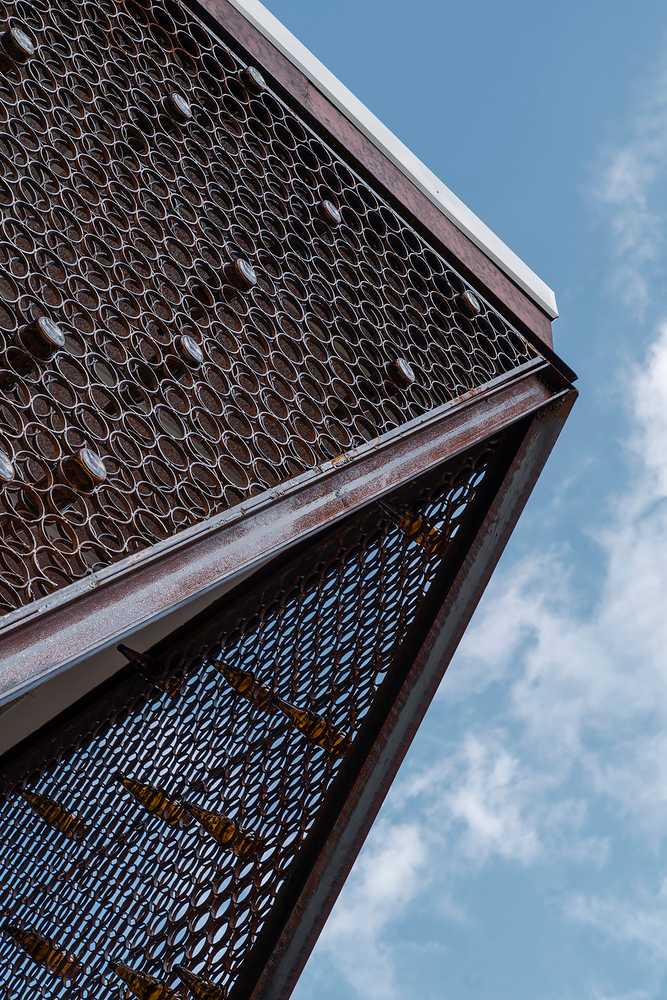
These discarded containers became the primary elements throughout the café's design, from the architectural facades to the interior finishes and furniture.
Some of the beer bottles were broken down into pieces and utilized as the primary component for the terrazzo counterworking top and toilet floor. Additionally, walls were adorned with bottles embedded in concrete, forming captivating patterns and textures. This distinctive technique, known as Bottles Fossil, left traces resembling fossils on the wall. Furthermore, small details such as a used galvanized iron oil tank transformed into a basin counter and repurposed glass bottles serving as door knobs added unique touches to the café's design.
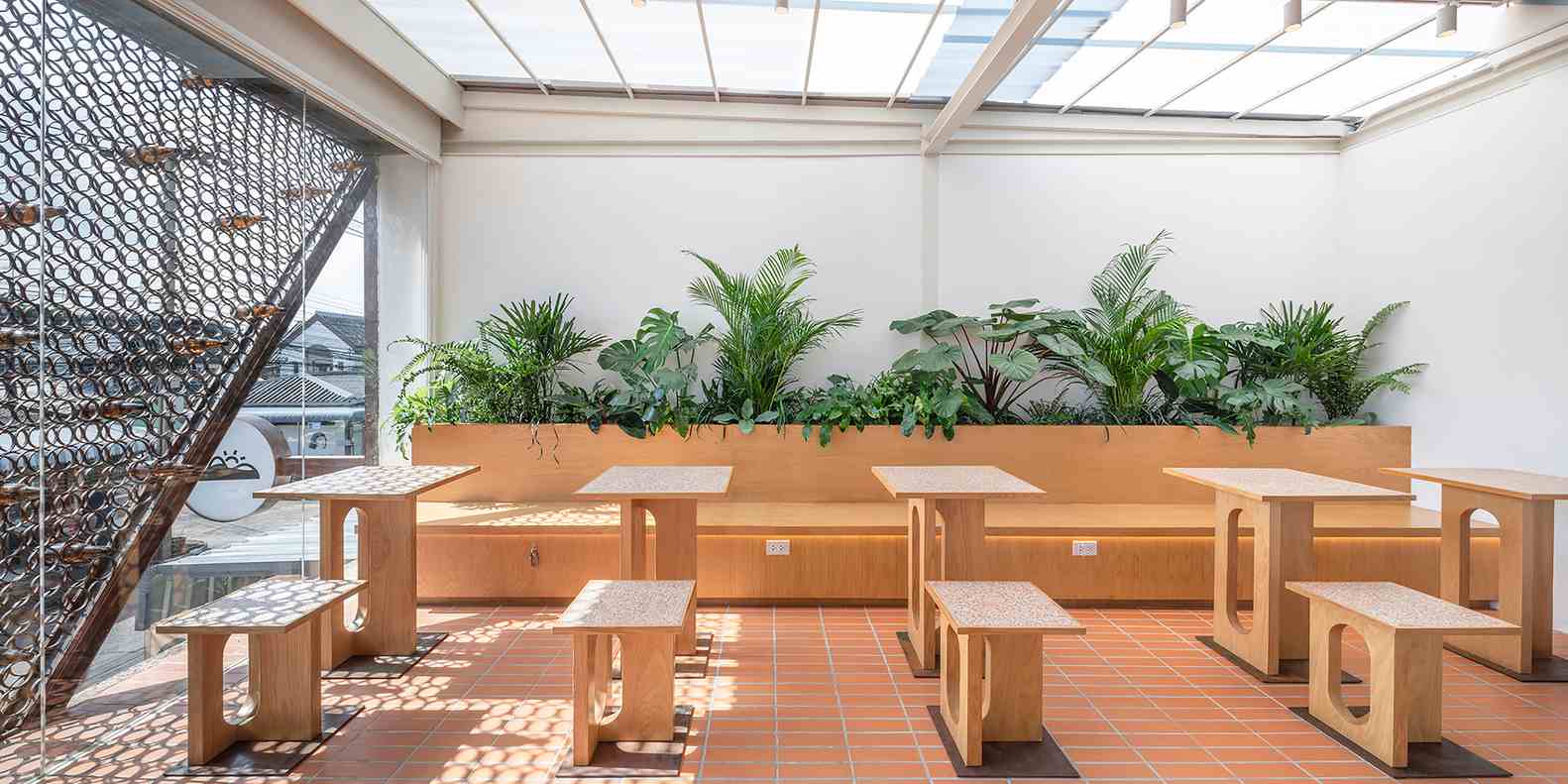
Working closely with a factory, space+craft transformed small cut pieces of used milk cartons into re-board, a 100 per cent recycled board.
Early BKK, a charming two-story building situated on a street corner, greets visitors with a small double-spaced courtyard featuring a majestic tree and a designated pet parking area, exuding a welcoming and friendly atmosphere. The ground floor houses the main coffee bar, complete with coffee machines and a slow bar, along with a retail area showcasing refill products, home coffee equipment, pet products and second-hand clothing. The second floor provides ample seating and is designed with large windows on both sides to facilitate ventilation. This versatile space can be easily transformed into a workshop area.
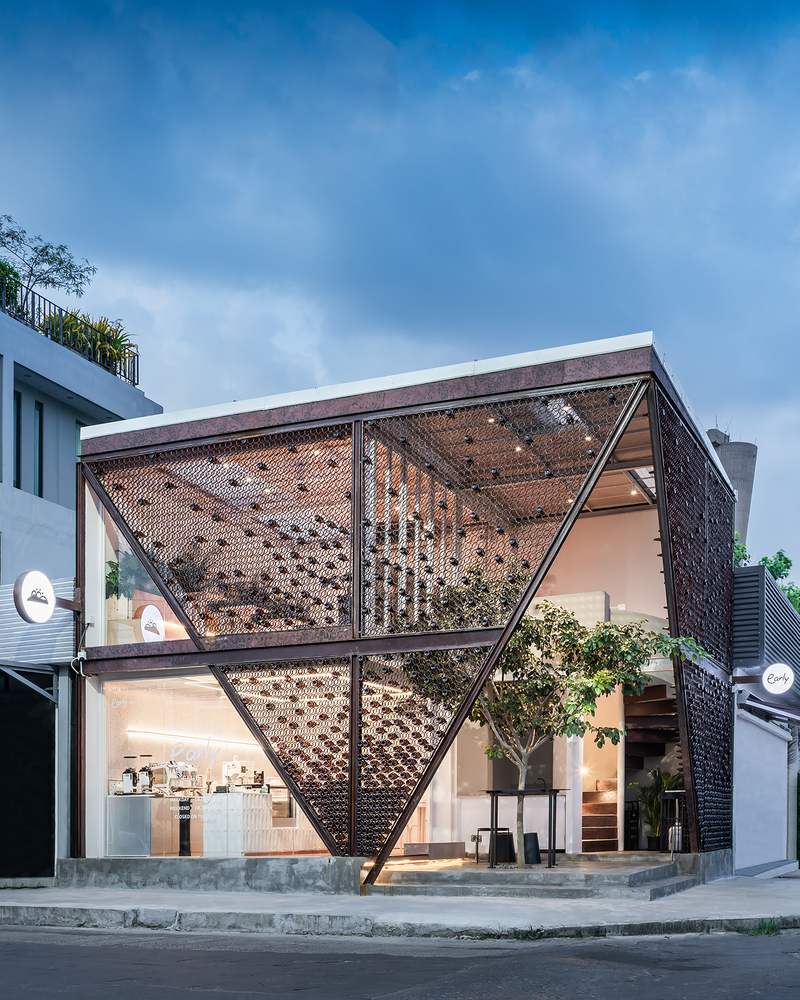
Around 600 beer bottles were strategically placed in metal ring structures on the exterior façade, creating mesmerizing light and shadow effects during the day and visually conveying Early BKK’s objective
The café's management is wholly committed to green and sustainable practices, implementing initiatives such as a no straws policy, eliminating plastic cups, offering discounts for bringing personal mugs and practicing waste separation. Solar panels installed on the roof serve as the primary energy source, exemplifying Early BKK’s dedication to minimizing waste and embracing responsibility for their carbon footprint.
Image credit: space+craf